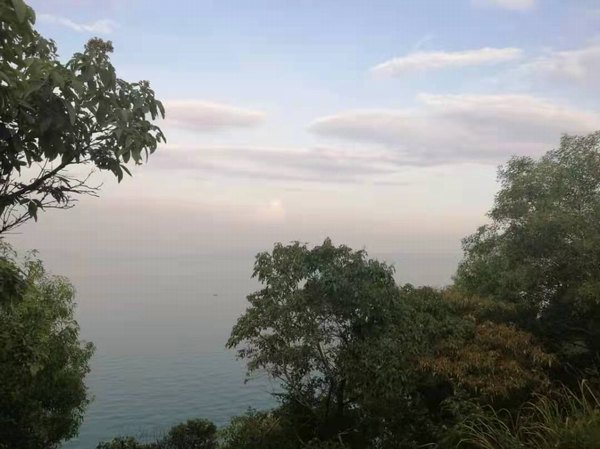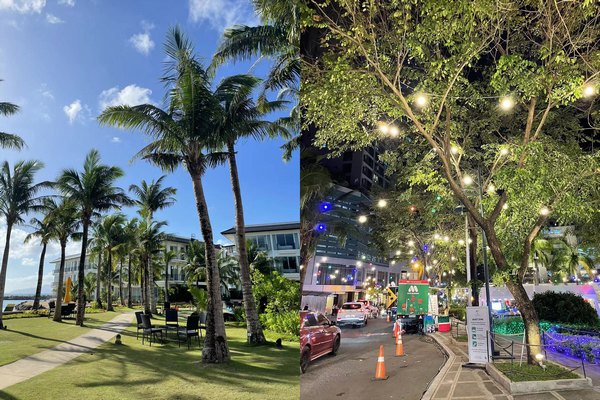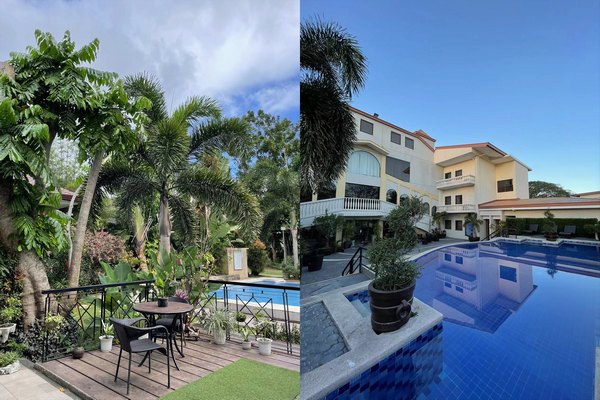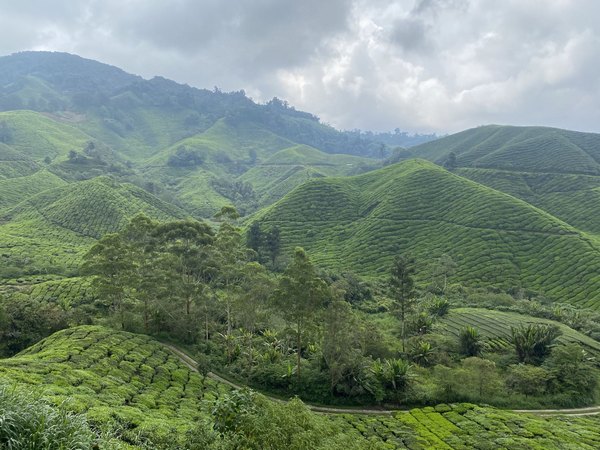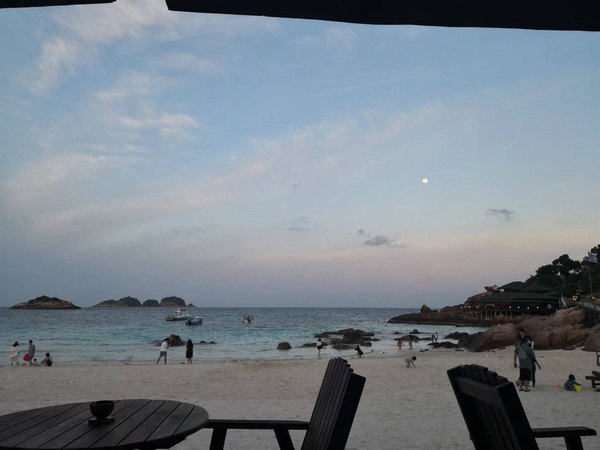雅思口语对很多学生来说都是一件令人头疼的事,口语练习对于雅思来说是十分重要的,对于雅思口语一定要勤加练习,雅思口语考试可不会像我们高三时考的口语一样不用准备就可以考得A或者B等级。我们很多人不单单要准备口语,还有很多其他的学习和工作要做,这时候,我们就需要把时间分配好,在学习或者工作之外的时间练习英语口语。这就是你很好的可以利用练习口语的时间,要抓住碎片化时间进行练习。雅思口语考试题库怎么使用?下面我将来介绍一些雅思口语的题目供大家练习。
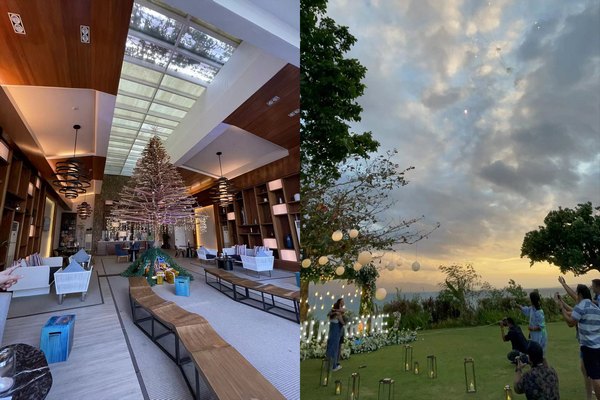
一、 雅思口语题库及答案2021
Happiness
题目解析:
本题属于旧题回库,不过是一道很有年份的旧题了,时隔多年再次出现,属于抽象理念类的话题,答题的时候注意内容不要太空泛。
What do you think makes people feel happy?
I think a relatively comfortable life, a loving family, and a good work-life balance are the keys to general happiness in life really. I think some people also need a fairly active social life and a couple of hobbies, interests, or sporting activities too, to feel really fulfilled.
Do you think happiness is important?
Of course, happiness is important, because if you are happy you are motivated, and if you are motivated you achieve things, and you become a positive person who spreads positivity to other people around you. Positive, happy people are great to be around and make us feel life is really worth living, even in hard times.
Can you tell me a happy experience that recently happened in your life?
I get happiness from fairly simple things, to be honest. A time I recently felt happy was after the new year when I went for a big dinner with my friends in a new restaurant in my town. We ate a lot of really good food, we chatted, and drank some beers, and afterwards we went to dance. I enjoy that kind of thing from time to time, and this occasion was especially fun!
Do you think money plays an important role in people’s happiness?
Money plays a role in one’s fundamental state of comfort in life, and enables one to do the basic things in life without too much struggle or stress. So, money is important to a point, but not as important as some people claim it is. One can also be obsessed with money and focus on it too much. And this is not always the root of true happiness.
be obsessed with:对…沉迷
(答案第一句话非常好地概括了金钱和幸福之间的关系,要学会哦!)
二、雅思口语考官最常见问题

1.What"s your name?
2. Does your name have any special meaning?
3. Where were you come from?
4. What kind of landscape surrounds your hometown?
5. What is the main crop in your hometown?
6. What is the difference between Beijing and your hometown?
8. What is the climate like in your hometown?
9. What is the character of the people like in the region where you live?
10. What are the differences in accent between the people of your hometown and Beijing?
11. What is people"s favorite food in your region?
12. How do you make dumplings?
13. What do you do during the Spring Festival?
14. Why is the Spring Festival so important to Chinese people?
15. Can you describe one of the main festivals celebrated in your country?
16. Tell me something about the Lantern Festival.
17. Tell me something about the Qing Ming Festival.
18. Tell me something about the customs of your country.
19. How long have you lived in Beijing?
20. What is the weather like in Beijing?
21. How do you compare the climate in Beijing with that in your hometown?
22. What place in Beijing do you like best? Why ?
23. Which is the worst place you"ve been to China?
24. Which is the best place you"ve been to China?
25. What places in Beijing should a foreigner visit? Why?
26. What are the major social problems in Beijing? How can they be solved?
27. What is the biggest problem China faces?
28. What places in Beijing should a foreigner visit? Why?
29. Could you tell me something about your family?
30. Have you any children?
31. What is your child"s name? Does his name have a meaning?
32. What does your wife/husband do?
33. When did you get married?
34. Describe your wedding.
35. How have weddings changed in recent years?
36. Are there any special customs about wedding in your region?
37. Describe a traditional wedding ceremony.
38. Where did you go for your honeymoon?
39. Did you have to ask for permission from your parents before you got married?
40. Is it acceptable for couples to live together without marrying?
41. Where do you think a newly couple should live? Living with their parents or on their own?
42. What responsibilities should a couple take?
43. How do Chinese usually celebrate birthdays?
44. Are there any traditions concerning the birth of a baby?
45. What kind of parent do you intend to be?
46. What do you think of One-Child Policy in China?
47. Why do people in China traditionally want to have a son?
48. What difficulties do Chinese farmers have concerning their old age?
49. What do you think needs to be done in order to relieve the farmer"s worries?
50. What hope or fears do you have for your children?
51. What sort of culture do you hope your child will grow up in?
52. Are you going to bring up your child differently from the way you were brought up? How?
53. Do you enjoy shopping?
54. Who does most of the shopping in your family?
55. What are you good at cooking? What is your favorite dish?
56. Who does most of cooking in your family?
57. Is there *** discrimination in China?
58. How do you sum up women"s conditions in China?
59. What are the causes of *** discrimination?
60. Should government pay certain salaries to those housewives? Why or why not?
61. Would you want your wife to continue with her career or to stay at home taking care of the household after you get married?
62. Have you ever wished to be one of the opposite ***? Why (why not)?
63. What would you do if your next-door neighbour were noisy nearly all the time?
64. Do you have a lot of friend?
65. What does friendship mean to you? What kind of people do you make friend with?
66. What is your major?
67. How do you like your major?
68. When and where did you graduate? What qualifications have you obtained?
69. Do you still remember your school days?
70. What impressed you most when you were at university?
72. Could you sum up your own study habits in a few points?
73. What do you think of the practice of setting up key schools in primary and secondary school education in China?
74. Do you think the subjects you are studying today are relevant to present-day society? Why ?
75. What do you think education should be? Should it be a process of learning what is useful for your future life or should it be simply learning for enjoyment? Why?
76. What do you do for a living?
77. What do you do in the office every day?
78. Since your job seems too professional to me, could you explain it in detail?
79. What are your job prospects?
80. If you had the opportunity to change your job, what would you do with it?
81. Do you have any ambitious?
82. Will any possible future changes affect your job in any way?
83. What are your spare time interests?
84. How do you spend your weekends?
85. What is your favorite sport? What are the rules?
86. What is the most popular sport in your country?
87. What are the sporting facilities like in your university/Beijing?
88. What do you know about Qigong? Do you believe in Qigong?
89. What do you do in your spare time?
90. Do you often read newspapers? If not, why ones do you read?
92. Do you think computer has changed our life so much?
93. Do you often go to the cinema/theatre?
94. What kind of films do you like best?
95. Do you often watch TV? What is your favorite program?
96. Do you think watching TV too much is a waste of time?
97. What kind of music do you enjoy?
98. Who is your favorite film star? Will you describe him/her to me?
99. Do you enjoy travelling?
100. Where have you been travelling to? Which place interested you most?
三、2021雅思一月预测
Part1
Bargain
1. Where can you bargain?Why?
在集市 - 卖手工小物品 - 卖家定价 - 所以 - 可以还价 - 低价购买
I usually bargain in some street markets, because the sellers there just sell some small items, which is mostly made by themselves, or they can sell their goods at any price they like, so I am able to bargain with them and then purchase something at a lower price.
2. How do you bargain?
是否有折扣 - 有 - 10%或更吉利的数字 - 没有 - 推荐商店给朋友 - 以后还会再来
Firstly, I like to ask "Is there any discount in the shop". If yes, I usually ask for 10% more off or want to get a luckier number, which is a little lower than the original selling price. If there's no discount at all, I'd like to tell the sellers I would recommend this shop to all of my friends and ask them to buy something in the shop later, so may I get a lower price today.
3. Do Chinese people bargain?
是 - 卖家定价高 - 买家想低价购买 - 中国人数学好 - 结合各种优惠券 - 得最实惠价
Of course, yes, we love bargaining with others since the sellers want to sell their products at a higher price, while the buyers want to purchase the goods at a lower cost. Moreover, most Chinese are good at math, so we gonna try our best to combine different kinds of coupons and manage to get the lowest price of one product.
4. What do you think of bargain?
越来越不常见 - 因为市场经济 - 价格固定 - 没有还价机会 - 然而 - 信息透明 - 比价
The bargain is increasingly unusually in our daily life. Due to the market-oriented economy, the price of various products is gradually fixed in retailers or online shops, and there will be no more possibilities that consumers could bargain again. However, because of the transparent information of products online, we could compare different types of goods instead, which is convenient and makes the market more equitable.
Museum
1. Do you like visiting museums? Why?
是 - 接触艺术的好方式 - 旅行时快速了解当地文化习俗
Yes, I like to visit museums of any kind because it's a good gateway to art. And if I travel to a new place, it's so effective for me to quickly get through the local culture and customs by visiting the local museums.
2. How often do you visit museums?
一年两次 - 工作忙 - 特殊展览 - 但旅游时参观更多
Not very frequent, perhaps only twice a year. Since I'm quite busy with my work, I only visit some special exhibitions held in the museum sometimes. But, as I've mentioned, if I travel to another place, I'll definitely visit more museums than before.
3. Are there any museums in your hometown?
是 - 最有名的是湖南省博物馆 - 很多独特的展品 - 吸引很多游客
Yes, there are several well-known museums in my city. The most famous one must be Hunan Provincial Museum since there are plenty of unique exhibits that people cannot find in other places in the world so that many tourists like to appreciate those artworks or ancient items in person in this museum.
4. Do you think there should be more museums in your hometown?
需要 - 展示和保存当地文化历史 - 拉近居民与家乡的距离 - 尤其是下一代 - 了解家乡的过去 - 更好了解文化
Definitely yes! Museums can display and preserve the culture and the history of an area, and more museums will allow more citizens to visit and remind them of something related to their hometown, especially for the next generation, they gotta know what happened in the place they are living now in the past, which could help them better understand their cultures.
Farming
1. Have you visited a farm?
是 - 奶牛农场 - 去年夏天 - 内蒙古 - 和朋友去避暑 - 亲手挤牛奶
Yes. I visited a cow farm last summer in Inner Mongolia. Summer was super-hot in my hometown, so I travelled to Inner Mongolia with my friends, and the most impressive activity I did there is to milk a cow in person.
2. What can you do on a farm?
很多有趣的户外活动 - 如挤牛奶 - 种植采摘水果蔬菜 - 钓鱼 - 放牛放羊等
Well, there are so many interesting outdoor activities we can do on a farm, like milking a cow, growing and picking various fruits and vegetable, fishing in the pond, grazing cattle and sheep and etc.
3. Do you think farming is important?
当然 - 最重要的产业之一 - 特别是中国 - 中国人口多 - 所以农业发展永远优先
Surely sure, farming is one of the most essential industry to any country, especially to China. As we all know, there is a population of more than 1.4 billion in China, so no matter how fast other industries grow, farming is the priority.
4. Are there any farms in your hometown?
没有 - 因为住在大城市 - 高楼大厦 - 没有空间
As far as I know, there is no farm in my hometown. I live in a modern city, which is full of skyscrapers and apartments, so there are only business area, residential area and industrial area. So, there's no place for farming in my hometown.
Plants
1. Have you planted trees?
是 - 小学到高中 - 学校植树节组织种树 - 保护环境 - 提升孩子们的环境保护意识
Yes, I've planted trees before. From my primary school to high school, teachers always organized all of the students to plant trees together on Arbor Day (Tree-planting Day), and I believe it's a really meaningful thing to protect the environment and it can also raise children's awareness of environmental protection.
2. Where did you plant trees?
以前 - 和同学在学校种树 - 现在 - 干旱和沙漠地区 - 但不是亲手 - 支付宝收集能量 - 可以种树 - 能量来自于环保消费行为 - 购物不要塑料袋 - 纸吸管 - 买卖二手产品
When I was a school student, I planted trees with my classmates on campus. But now, I plant trees in some arid regions and desert, of course, I don't plant those trees in those severe zones myself, I collect many energies on an app called Alipay, which could help me plant trees if I accumulate enough energies. Those energies are made by my eco-friendly consuming behaviors, like no plastic bags when shopping, the use of paper straw instead of plastic straw, or selling and buying second-hand products.
3. Do you keep plants at home?
是 - 一个月买一次鲜花 - 有益于身心健康 - 喜欢房间香 - 鲜花比香水更好
Yes, I get used to buying a bunch of fresh flowers once a month, I think, which could be helpful to my mental and physical health. I prefer my room to be scented, and those fresh plants are much better than strong perfumes for me, so I always keep some mini plants at home.
4. Do you know anything about growing a plant?
只懂一点 - 一天浇一次水 - 面对阳光 - 长得更快更好
To be honest, I only know a bit about it. For example, planters need to water the plant at least once a day and place the plant toward the sunshine so as to ensure it grow fast and well.
5. What plant did you grow when you were young?
仙人掌 - 沙漠 - 不需要常浇水 - 所以照顾方便省事 - 养了3年多
I planted a mini cactus when I was young. As we all know, cactus usually grow in the desert. That is to say, cactus don't need too much water in general conditions. So, it is convenient and quite easy for me to take care of the cactus, and I kept that cactus for more than 3 years.
四、如何快速提高雅思口语
雅思口语怎么练习?找到一个专业的外教进行练习还是很有必要的。分享一下我在用的app:留小留,可以随时和世界各地的Native Speaker进行一对一的口语对练,里面有很多专业的雅思外教可以选择,而且还有前雅思高级考官,强烈建议考试前跟雅思考官模拟测试一下。这个软件用起来就跟打微信语音/视频电话一样,质量很清晰。这个是最让我感到意外且性价比超级高的一个APP了。我长期练习的一个外教陪练是英国的Leila,她不仅口音纯正,而且人超级nice,她本人还是一个摄影师,我也经常跟她交流摄影方面的技巧。
不过大家在跟外国人练习雅思口语的时候,我有2个建议:1是提前准备一个话题,带着话题去跟他们练习能让你学到很多地道的表达;2.是不一定非要选择欧美的老外,像有些南非、菲律宾的也很专业,练习口语也不错。
我们精心为大家整理的《雅思口语考官常见问题都有哪些》文章不知道大家满不满意,如果大家想了解更多语言培训相关的信息,请关注语言培训栏目。
本文来源:
https://shouye.dsxliuxue.com/news/75879.html


